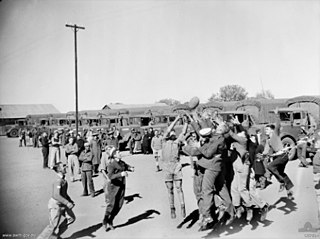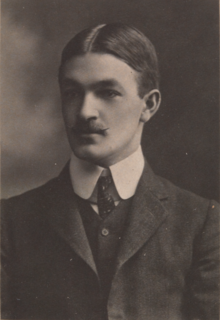 W
WAustralian rules football was heavily affected by both World War I and World War II. Hundreds of leading players served their country abroad, and many lost their lives. On the home front, competitions like the Victorian Football League (VFL) went ahead during these wars, but faced many restrictions.
 W
WCharles Edwin Woodrow Bean, usually identified as C. E. W. Bean is considered one of Australia's most distinguished men of letters and one of Australia's most distinguished and influential historians. He was Australia's official war correspondent, subsequently its official war historian, who wrote six volumes and edited the remaining six of the twelve-volume Official History of Australia in the War of 1914–1918. Recognised as the founder of the Australian War Memorial (AWM), no other Australian has been more influential in shaping the way the First World War is remembered and commemorated in Australia.
 W
WFrederic Morley Cutlack was an Australian journalist and military historian. He was an author of a number of books on aspects of Australian military history, including one of the volumes of the official history series Official History of Australia in the War of 1914–1918.
 W
WDigger is a military slang term for soldiers from Australia and New Zealand. Evidence of its use has been found in those countries as early as the 1850s, but its current usage in a military context did not become prominent until World War I, when Australian and New Zealand troops began using it on the Western Front around 1916–17. Evolving out of its usage during the war, the term has been linked to the concept of the Anzac legend, but within a wider social context, it is linked to the concept of "egalitarian mateship".
 W
WEdward George Honey was an Australian journalist who suggested the idea of five minutes of silence in a letter to a London newspaper in May 1919, about 6 months before the first observance of the Two-minute silence in London.
 W
WLeonard Maurice Keysor, VC was a British-born Australian recipient of the Victoria Cross, the highest award for gallantry "in the face of the enemy" that can be awarded to British and Commonwealth forces. Born in England, Keysor emigrated to Australia shortly before the outbreak of the First World War. He enlisted in the First Australian Imperial Force in August 1914 and served in Egypt before landing at Gallipoli, Turkey at the beginning of the campaign. On 7 August 1915 at Lone Pine, while serving as an acting lance-corporal, 29-year-old Keysor performed an act of bravery for which he was awarded the Victoria Cross. Later in the war he took part in the fighting in France, serving in the trenches along the Western Front. He would later achieve the rank of lieutenant before being discharged from the army on medical grounds at the end of the war.
 W
WSince the inception of the Victorian Football League in 1897, many of its players have served in the armed services, including the Anglo-Boer War, World War I, World War II, the Korean War, and the Vietnam War.